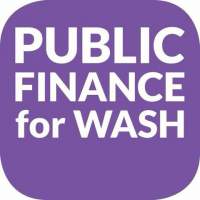- Markets, finance and governance
- Government initiatives and regulations
- BLOG: Community-run aqueducts in Colombia promote public policy for scaling up public finance for WASH
BLOG: Community-run aqueducts in Colombia promote public policy for scaling up public finance for WASH
3357 views
- pf4wash
-
 Topic Author
Topic Author- PF4WASH is a research and advocacy initiative around domestic public finance for water and sanitation. Public Finance for WASH was set up in late 2014 by a group of individuals from Water & Sanitation for the Urban Poor (WSUP), IRC & Tremolet Consulting.
BLOG: Community-run aqueducts in Colombia promote public policy for scaling up public finance for WASH
Community-run aqueducts in Colombia promote public policy for scaling up public finance for WASH
By Valeria Llano-Arias, WSUP
In Colombia, around 12,000 community-run water aqueducts - organised civil society groups- provide water to millions of people in rural and peri-urban areas. These community aqueducts operate following the same regulation of medium and large service providers: Law 142 of 1994. Law 142 stresses that service providers should follow principles of technological innovation and economic efficiency. These principles pose a great challenge for community aqueducts, many of which do not comply with the full set of technical, financial, and administrative requirements. In the last decade, many community aqueducts have strengthened their networks and pushed for legislation that recognises their community aims. Moreover, they advocate for increasing the municipalities’ budget allocation to support their work. This blog is derived from an article[1] that describes a particular case of an association of community aqueducts in Colombia and the advocacy process to demand increased public investment and support to their work as water service providers.
Co-production of water services between the state and communities
The notion of co-production is useful to explain the provision of services between communities and the state. For Warren et al. (1982)[2], co-production can reduce costs, improve the quality of services and expand citizensʼ participation in decision-making processes on public services. The community aqueducts provide a public service with their own resources and capacities. They also receive support from the state such as repairing infrastructure and assistance in emergencies, e.g. floods and landslides. Elinor Ostrom[3] points out that "[o]n the one hand, no market can survive without extensive public goods provided by governmental agencies, but, on the other hand, no government can be efficient and equitable without considerable input from citizens." The community aqueducts do not think that their work shrinks state responsibilities. They see their work as a demonstration of autonomy and governance at the local level. Nonetheless, they request more support from the state for improving the water service.
You can continue reading the full text here
By Valeria Llano-Arias, WSUP
In Colombia, around 12,000 community-run water aqueducts - organised civil society groups- provide water to millions of people in rural and peri-urban areas. These community aqueducts operate following the same regulation of medium and large service providers: Law 142 of 1994. Law 142 stresses that service providers should follow principles of technological innovation and economic efficiency. These principles pose a great challenge for community aqueducts, many of which do not comply with the full set of technical, financial, and administrative requirements. In the last decade, many community aqueducts have strengthened their networks and pushed for legislation that recognises their community aims. Moreover, they advocate for increasing the municipalities’ budget allocation to support their work. This blog is derived from an article[1] that describes a particular case of an association of community aqueducts in Colombia and the advocacy process to demand increased public investment and support to their work as water service providers.
Co-production of water services between the state and communities
The notion of co-production is useful to explain the provision of services between communities and the state. For Warren et al. (1982)[2], co-production can reduce costs, improve the quality of services and expand citizensʼ participation in decision-making processes on public services. The community aqueducts provide a public service with their own resources and capacities. They also receive support from the state such as repairing infrastructure and assistance in emergencies, e.g. floods and landslides. Elinor Ostrom[3] points out that "[o]n the one hand, no market can survive without extensive public goods provided by governmental agencies, but, on the other hand, no government can be efficient and equitable without considerable input from citizens." The community aqueducts do not think that their work shrinks state responsibilities. They see their work as a demonstration of autonomy and governance at the local level. Nonetheless, they request more support from the state for improving the water service.
You can continue reading the full text here
PF4WASH
Website www.publicfinanceforwash.com
Twitter @pf4wash
Facebook: www.facebook.com/publicfinanceforwash
*Check out our most recent Finance Brief here:
www.publicfinanceforwash.com/ZkA
Website www.publicfinanceforwash.com
Twitter @pf4wash
Facebook: www.facebook.com/publicfinanceforwash
*Check out our most recent Finance Brief here:
www.publicfinanceforwash.com/ZkA
Please Log in to join the conversation.
You need to login to reply
Share this thread:
- Markets, finance and governance
- Government initiatives and regulations
- BLOG: Community-run aqueducts in Colombia promote public policy for scaling up public finance for WASH
Time to create page: 0.113 seconds







